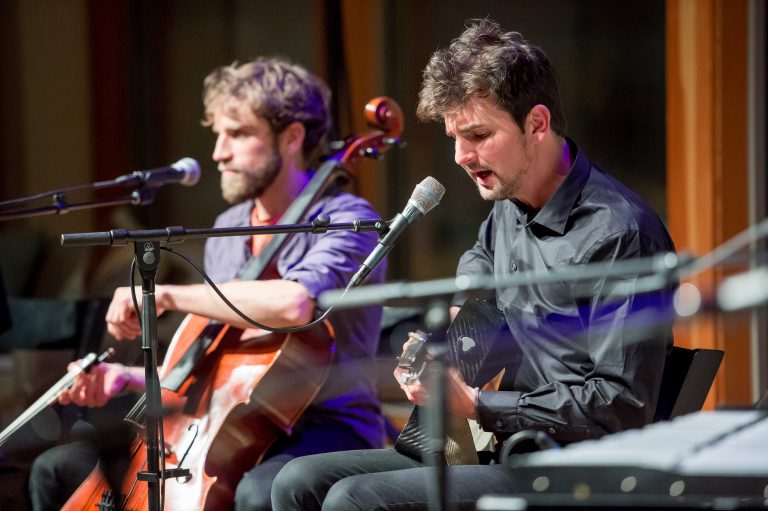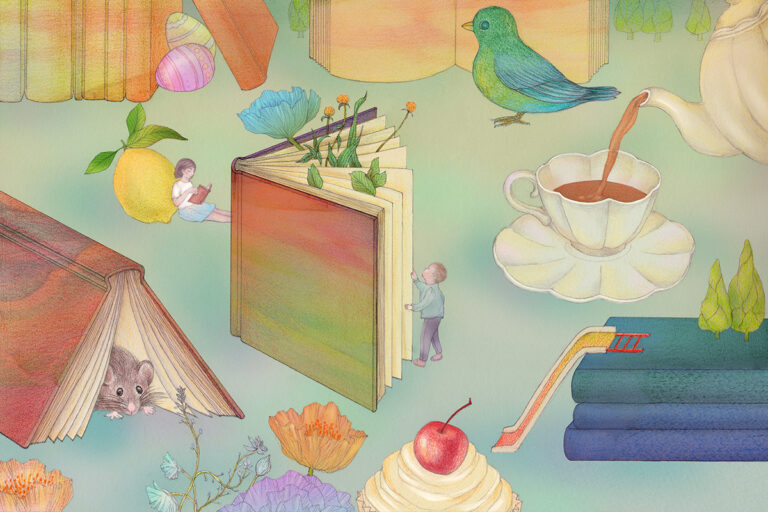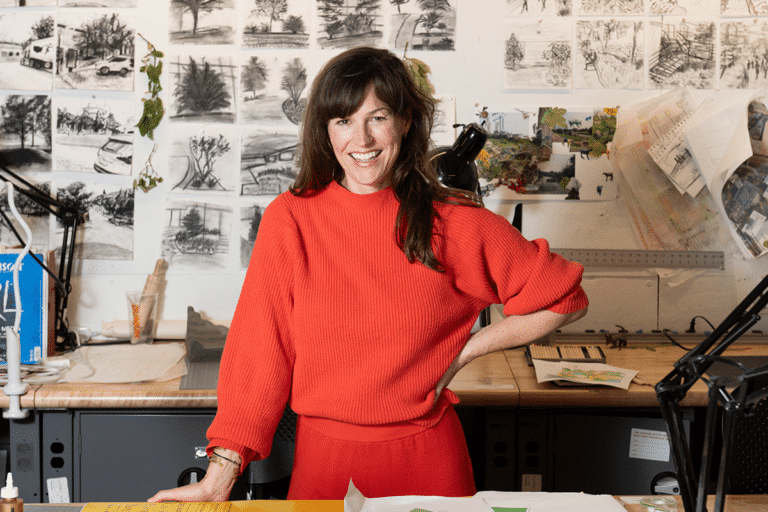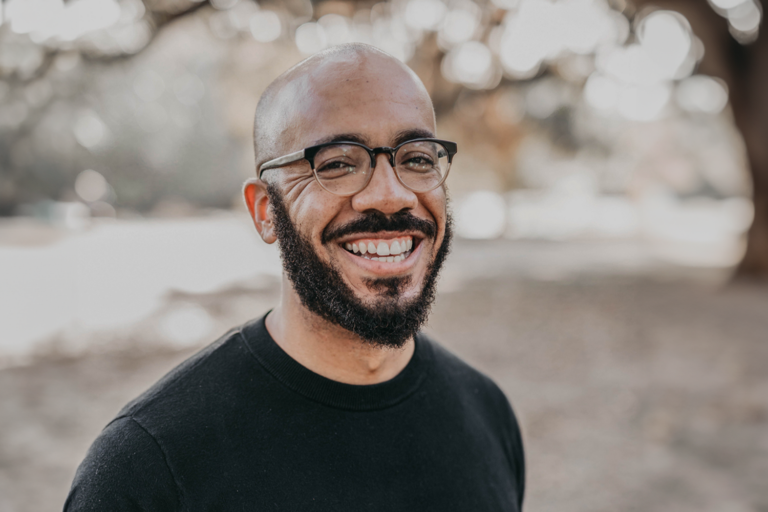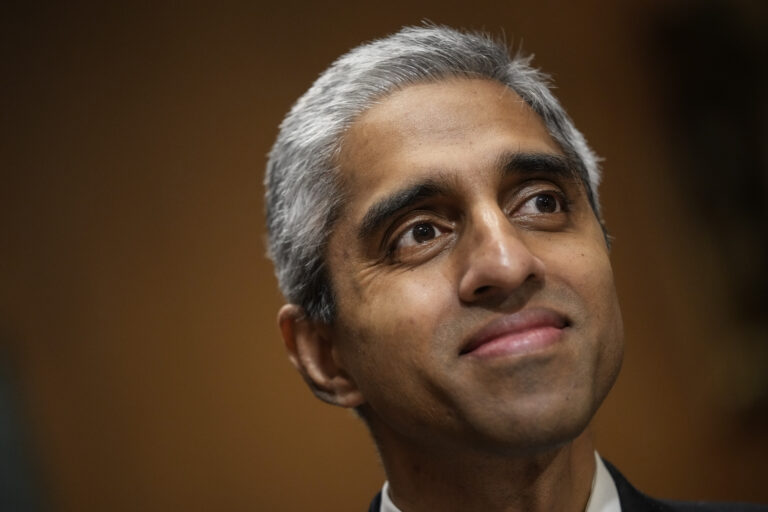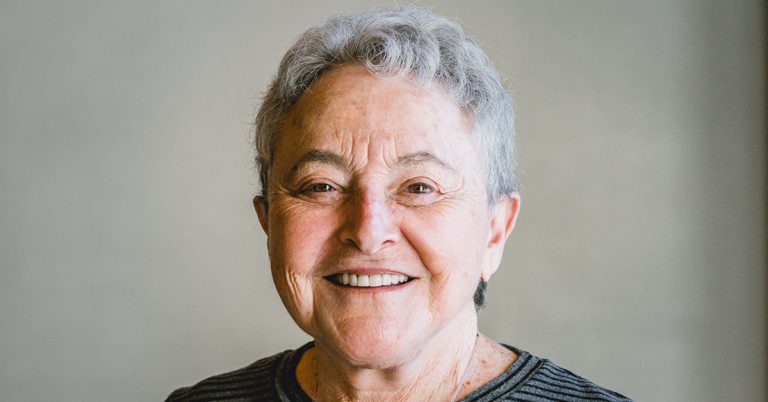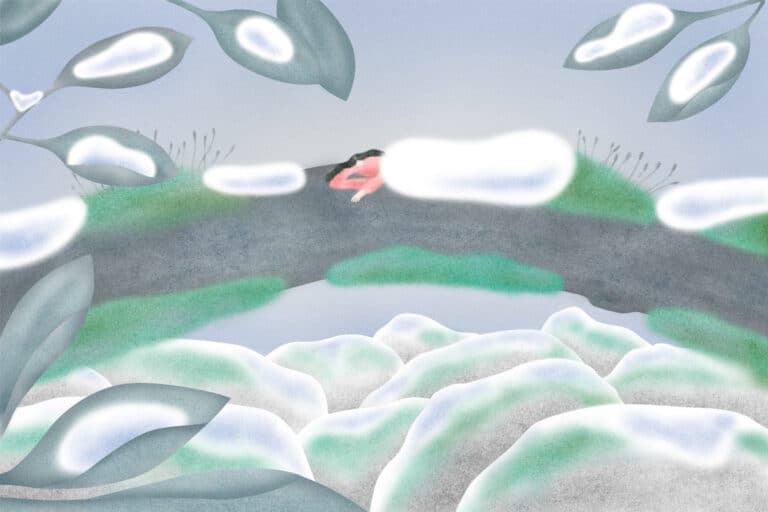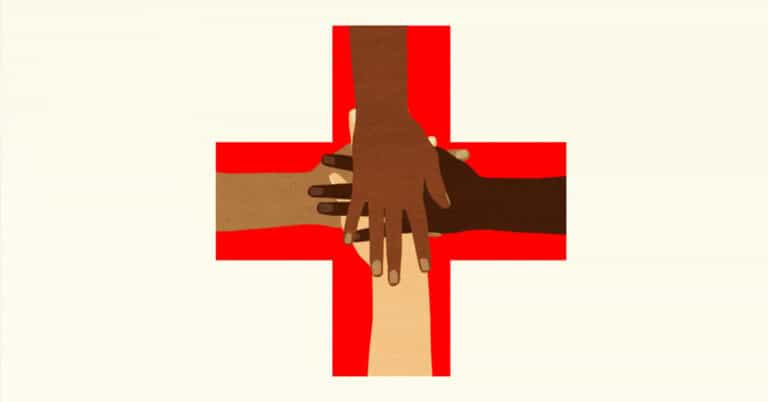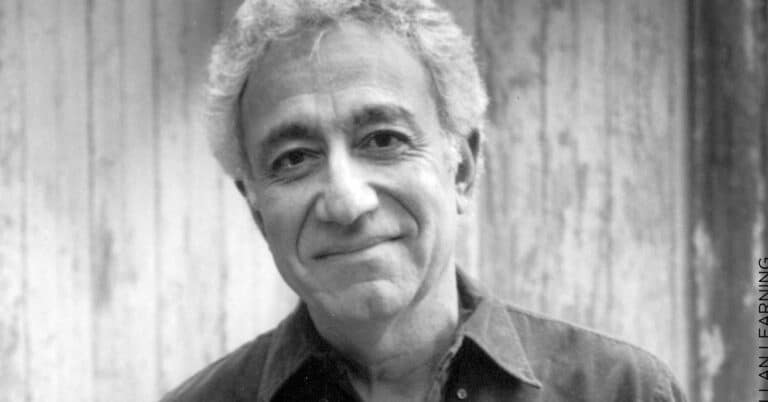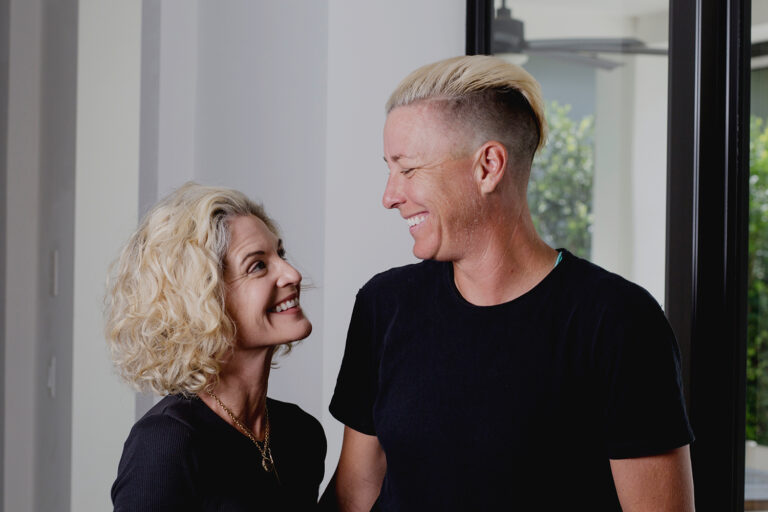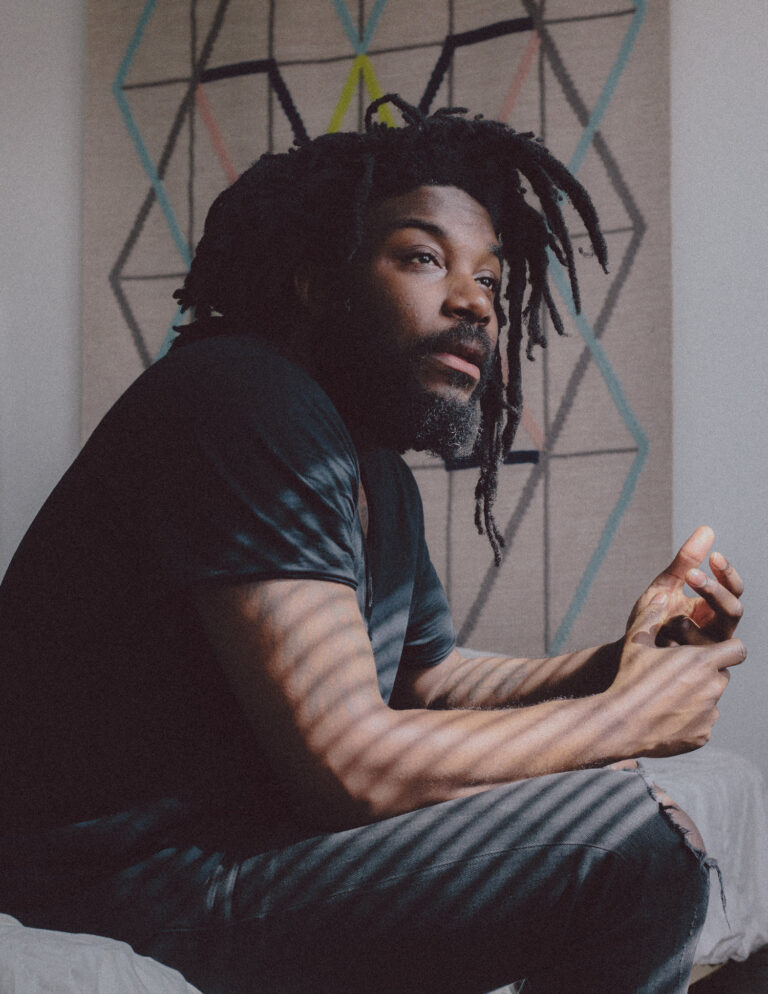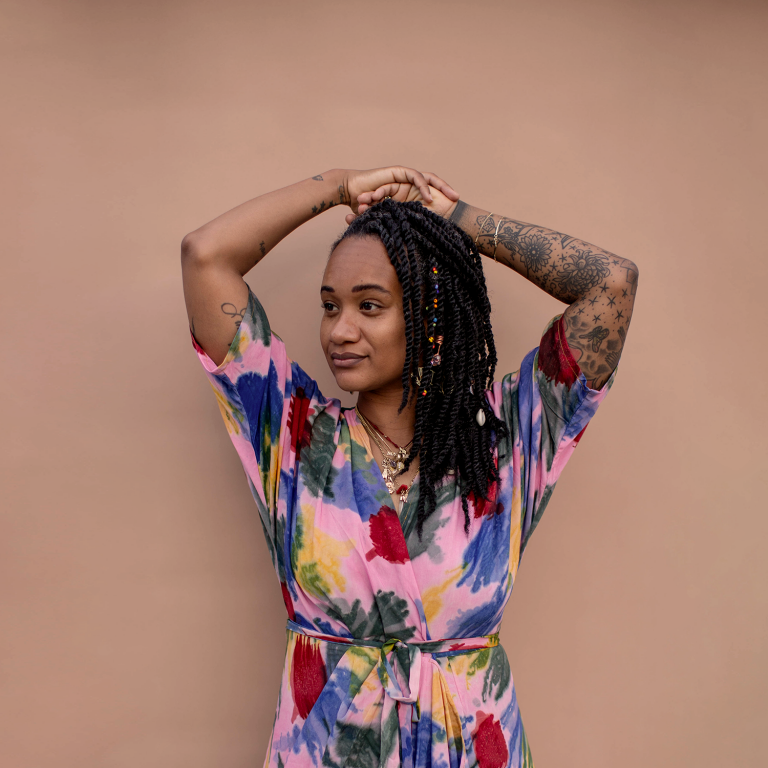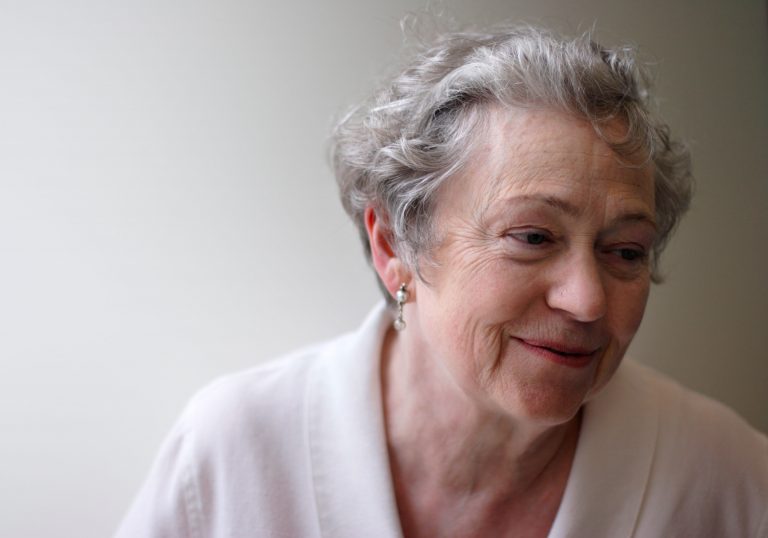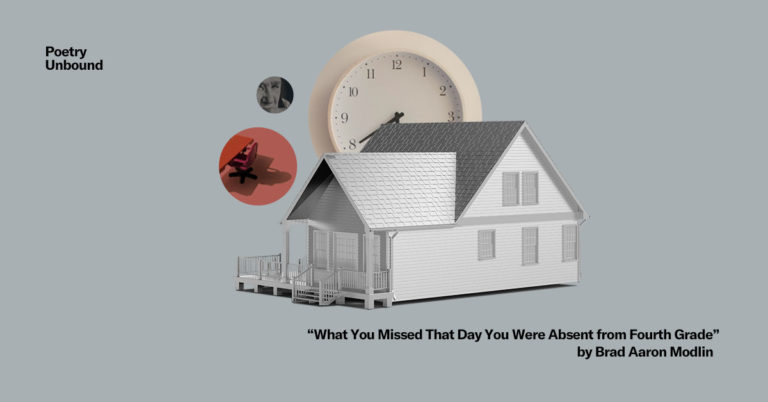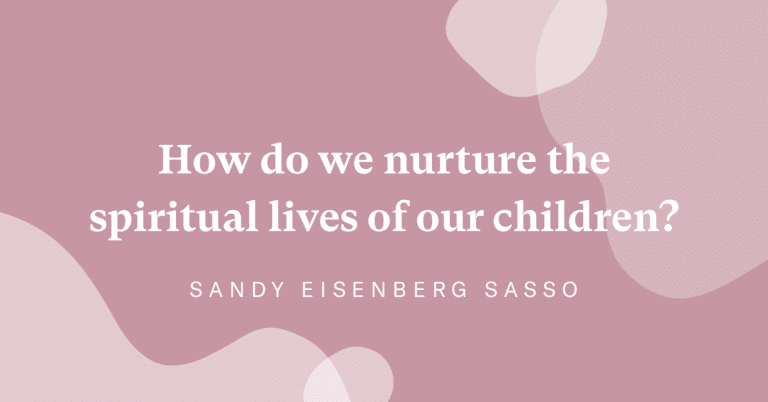A few years ago, Krista hosted an event in Detroit — a city in flux — on the theme of raising children. The conversation that resulted with the Jewish-Buddhist teacher and psychotherapist Sylvia Boorstein has been a companion to her and to many from that day forward. Here it is again as an offering for Mother’s Day — in a world still and again in flux, and where the matter of raising new human beings feels as complicated as ever before. Sylvia gifts us this teaching: that nurturing children’s inner lives can be woven into the fabric of our days — and that nurturing ourselves is also good for the children and everyone else in our lives.
Children, Parenting & Education
Featured Items
Music is a source of solace and nourishment in the best of times and the hardest of times. It has been for so many of us in this year of pandemic, and Cloud Cult is on every playlist Krista makes. Craig Minowa started the band in 1995. Its trajectory was cathartically changed the day he and his wife Connie woke up to find that their firstborn two-year-old son, Kaidin, had mysteriously died in his sleep. The music that has emerged ever since has spanned the human experience from the rawest grief to the fiercest hope. We welcomed Craig and the whole Cloud Cult ensemble to On Being Studios in Minneapolis, for conversation and music, in 2016.
View
- List View
- Standard View
- Grid View
30 Results
Filters
In her writing, it is Kate DiCamillo’s gift to make bearable the fact that joy and sorrow live so close, side by side, in life as it is (if not as we wish it to be). In this conversation, along with good measures of raucous laughter and a few tears, Kate summons us to hearts “capacious enough to contain the complexities and mysteries of ourselves and each other” — qualities these years in the life of the world call forth from all of us, young and old, with ever greater poignancy and vigor.
November 16, 2023
Sara Hendren
Our Bodies, Aliveness, and the Built World
Our built world is designed around something called “normal,” and yet every single one of our bodies is mysterious, and constantly adapting for better or worse — and always, always changing. This is a fact so ordinary — and yet not something most of us routinely pause to know and to ponder and work with. But Sara Hendren has made it her passion, bringing to it her varied vocations and gifts: being a painter and loving how art reveals truth not by way of simplicity, but by juxtaposition; teaching design to engineering students; parenting three beloved children, one of whom has Down syndrome.
This is a conversation that will have you moving through the world both marveling at the ordinary adaptations that bodies make and asking, in Sara’s words, “restless and generative questions”: of why we organize the physical world as though vulnerability and needs for assistance are not commonplace — indeed salutary — forms of experience that reveal the genius of what being human is all about.
This phrase recurs throughout Clint Smith’s writing: “in the marrow of our bones.” It is an example of how words can hold encrypted wisdom — in this case, the reality that memory and emotion lodge in us physically. Words and phrases have carried this truth forward in time long before we had the science to understand it.
Clint Smith is best known for his 2021 book, How the Word Is Passed, but he is first and foremost a poet. He and Krista discuss how his various life chapters have been real-world laboratories for him to investigate the entanglement between language and the intelligence of the body — and the related entanglement between history and place. His poetic sensibility has singularly opened readers to approach a generative reckoning with American history — on whatever side of that history our ancestors stood.
Clint Smith has a way of making reckoning possible at a humanizing, softening, bodily level — in the marrow, you might say, of our bones.
We need a modicum of vitality to simply be alive in this time. And we’re in an enduringly tender place. The mental health crisis that is invoked all around, especially as we look to the young, is one manifestation of the gravity of the post-2020 world. How to name and honor this more openly? How to hold that together with the ways we’ve been given to learn and to grow? Who are we called to be moving forward? Dr. Vivek Murthy is a brilliant, wise, and kind companion in these questions. He’s a renowned physician and research scientist in his second tenure as U.S. Surgeon General. And for years, he’s been naming and investigating loneliness as a public health matter, including his own experience of that very human condition.
It is beyond rare to be in the presence of a person holding high governmental office who speaks about love with ease and dignity — and about the agency to be healers that is available to us all. There is so much here to walk away with, and into. This conversation quieted and touched a room full of raucous podcasters at the 2023 On Air Fest in Brooklyn.
There are many resources for mental health support. If you’re in the U.S., find some of them here.
A few years ago, Krista hosted an event in Detroit — a city in flux — on the theme of raising children. The conversation that resulted with the Jewish-Buddhist teacher and psychotherapist Sylvia Boorstein has been a companion to her and to many from that day forward. Here it is again as an offering for Mother’s Day — in a world still and again in flux, and where the matter of raising new human beings feels as complicated as ever before. Sylvia gifts us this teaching: that nurturing children’s inner lives can be woven into the fabric of our days — and that nurturing ourselves is also good for the children and everyone else in our lives.
In so many stories and fables that shape us, cold and snow, the closing in of the light — these have deep psychological, as much as physical, reality. This is “wintering,” as the English writer Katherine May illuminates in her beautiful, meditative book of that title — at once a season of the natural world, a respite our bodies require, and a state of mind. Krista first spoke with Katherine in midwinter 2020, and their conversation continues to offer a helpful container for our pandemic time: as one vast, extended, communal experience of wintering. As 2021 draws to a close — still with so much to metabolize and to carry, with an aching need for replenishment — Katherine May opens up exactly what so many have needed to hear, but haven’t known how to name.
December 2, 2021
Vivek Murthy and Richard Davidson
The Future of Well-being
What if the future of well-being is about “tipping the scales in the world away from fear and toward love”? And what if it’s a surgeon general of the United States, Dr. Vivek Murthy, who talks this way? Krista draws him out with his friend, the groundbreaking neuroscientist Richard Davidson. Together they carry deep intelligence and vision from the realms of science and public health, expansively understood. They explore all we are learning to help move us forward as a species. This conversation was held as a live Zoom event, sponsored by the Center for Healthy Minds.
October 7, 2021
Mike Rose
The Deepest Meanings of Intelligence and Vocation
“I grew up a witness,” Mike Rose wrote, “to the intelligence of the waitress in motion, the reflective welder, the strategy of the guy on the assembly line. This then is something I know: the thought it takes to do physical work.” Mike Rose died in August, yet the particular way he saw the world resonates more than ever before as our debates about the future of school and work only intensify. He argued with care and eloquence that we risk too narrow a view of the way the physical, the human, and the cognitive blend in all kinds of learning and in all kinds of labor. Mike Rose’s intelligence would enlarge our civic imagination on big subjects at the heart of who we are — schooling, social class, and the deepest meaning of vocation.
Glennon Doyle’s book Untamed has been a sensation of 2020 and beyond, and now she’s launched a new podcast titled with words of hers that have become a cultural force: We Can Do Hard Things. Meanwhile her wife, the soccer icon Abby Wambach, has her own bestselling books and is hosting a new tv show – Abby’s Places on ESPN+. Krista spoke with them before they were quite so much in the public eye together, and it’s a window into the passions that brought them here. They sat together in Seattle at the 2018 summit of Women Moving Millions, a consortium of women testing the meaning and boundaries of philanthropy. And courage was the theme of the day.
Jason Reynolds is the National Ambassador for Young People’s Literature of the Library of Congress — and a magnificent source of wisdom for human society as a whole. He’s driven by compassion and the clear-eyed honesty that the young both possess and demand of the rest of us. Ibram X. Kendi chose him to write the YA companion to Stamped from the Beginning. In his person, Jason Reynolds both embodies and inspires innate human powers of fortitude and imagination. Hear him on “breathlaughter”; the libraries in all of our heads; and a stunning working definition of anti-racism: “simply the muscle that says humans are human… I love you, because you remind me more of myself than not.”
Alex Elle complicates the idea of self-care, opening it up as community-care, as a way towards generational healing. And she’s revivifying the meaning of meeting one’s “inner child” for a new generation. Our colleague Lily Percy says she could not have survived the physical isolation of the pandemic without Alex’s writing, teaching, and Instagram presence. So Krista hands over the mic to Lily for this conversation.
It’s pretty intriguing to follow poet Naomi Shihab Nye’s idea that most of us actually “think in poems” whether we know it or not. Rarely, as she points out, do you hear anyone say they feel worse after writing things down. That, she says, can be a tool to survive in hard times like these, to anchor our days and to get into a conversation and community with all of the selves that live on in each of us at any given moment — “your child self, your older self, your confused self, your self-that-makes-a-lot-of-mistakes.” We also hear her read her beloved poem “Kindness” and tell us the story behind it.
December 31, 2020
Mary Catherine Bateson
Living as an Improvisational Art
Underpinning all the great challenges of our time there is the human drama, the human condition. And as we move beyond 2020, we turn to Mary Catherine Bateson to help us understand the puzzle of being ourselves, of rising to our best capacities and gifts, in all of our complexity and strangeness. She is the daughter of the great anthropologists Margaret Mead and Gregory Bateson, and she is a linguist and anthropologist herself.
Music is a source of solace and nourishment in the best of times and the hardest of times. It has been for so many of us in this year of pandemic, and Cloud Cult is on every playlist Krista makes. Craig Minowa started the band in 1995. Its trajectory was cathartically changed the day he and his wife Connie woke up to find that their firstborn two-year-old son, Kaidin, had mysteriously died in his sleep. The music that has emerged ever since has spanned the human experience from the rawest grief to the fiercest hope. We welcomed Craig and the whole Cloud Cult ensemble to On Being Studios in Minneapolis, for conversation and music, in 2016.
Marilyn Nelson is a storytelling poet. She has taught poetry and contemplative practice to college students and West Point cadets. She brings a contemplative eye to ordinary goodness in the present and to complicated ancestries we’re all reckoning with now. And she imparts a spacious perspective on what “communal pondering” might mean.
Brad Aaron Modlin’s poem “What You Missed That Day You Were Absent from Fourth Grade” speaks of learning to grow up by yourself. The poet wonders what life lessons would look like if they could be taught by a teacher; a good teacher, a teacher like Mrs. Nelson.
A question to reflect on after you listen: What life lessons did you have to learn by yourself?
James Baldwin said, “American history is longer, larger, more various, more beautiful, and more terrible than anything anyone has ever said about it.” Imani Perry embodies that prism. For the past few years, Perry has been pondering the notions of slow work and resistant joy as she writes about what it means to raise her two black sons — as a thinker and writer at the intersection of law, race, culture, and literature. This live conversation was recorded at the Chautauqua Institution.
A rabbi and parent, Sandy Eisenberg Sasso wants us to think about how we might teach our children’s souls, not just their minds. She says nurturing the spiritual lives of our children is the work of understanding for ourselves “what really matters in life, what’s precious, what’s more important than earning a living and going through our daily routine.”
The Pause
Join our constellation of listening and living.
The Pause is a monthly Saturday morning companion to all things On Being, with heads-up on new episodes, special offerings, event invitations, recommendations, and reflections from Krista all year round.
Search results for “”
View
- List View
- Standard View
- Grid View
Filters
